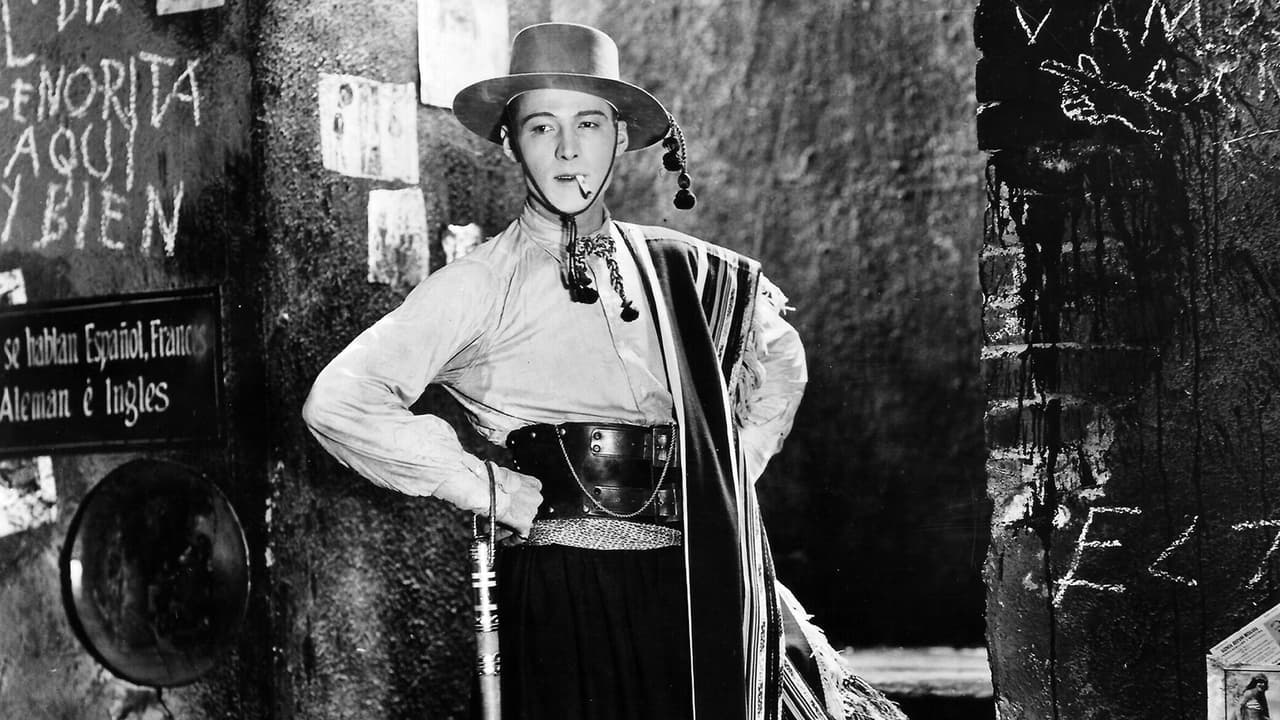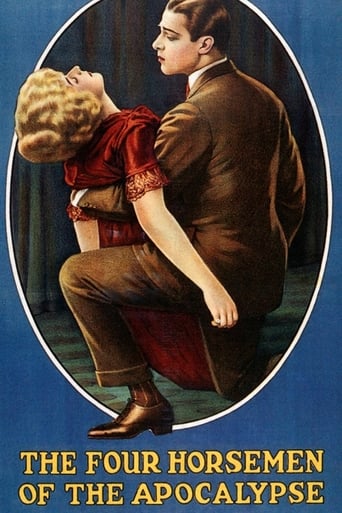BootDigest
Such a frustrating disappointment
Flyerplesys
Perfectly adorable
Actuakers
One of my all time favorites.
Ezmae Chang
This is a small, humorous movie in some ways, but it has a huge heart. What a nice experience.
marlene_rantz
Because of its length, I had to watch this film in three segments, and each segment presented a revelation. In the first segment, it was the famous tango by Rudolph Valentino, which might be considered great acting all by itself. In the second segment, it was the tragic romance between Rudolph Valentino and Alice Terry, so well played by both of them. In the final segment, it was Nigel De Brulier's reply to Josef Swickard's question: "Did you know my son?"-"I knew them all", and what a beautiful expression of sympathy was on his face! The movie was quite long, but it had a story to tell that needed a longer length! Everyone in it was quite good, especially Rudolph Valentino, Alice Terry, Nigel De Brulier, and Josef Swickard! The direction by Rex Ingram was excellent, also!
kijii
This expensive classic silent was the box office hit that started Rudolph Valentino's career as a starring actor. It is both an epic and a family saga.The movie starts in Argentina with a wealthy landowner, Madariaga the Centaur (Pomeroy Cannnon), and his two daughters; one is married to a German, Karl von Hartrott (Alan Hale) and has three sons. The other is married to a Frenchman, Marcelo Desnoyers (Josef Swickard) and is awaiting her first child. Not favoring von Hartrott or his family, Madariaga is happy to learn that his other daughter has a boy who he names Julio. As Julio (Rudolph Valentino) grows up, it is clear that the powerful grandfather prefers him over all his other grandchildren. He spoils him, teaching him no values or skills. When Madariaga dies, his estate is split equally between his two daughters. Hartrott decides to sell his half and take his family back to his fatherland, Germany. Desnoyers follows suit by taking his family to France. When the useless Julio moves to France, he studies art (probably to paint nude women) but is better known as a local Tango dancer. While out on the town, Julio meets a young married woman, Marguerite Lurier (Alice Terry). They fall in love and have a prolonged affair. Her husband, Etienne (John St. Polis), discovers it and demands satisfaction from Julio. Julio's father begs his old friend, Etienne, not to start a family scandal by dueling with his son. During this time, the Great War breaks out. As war engulfs Europe, all personal issues fade away as powerful symbols of war (the Four Horseman of the Apocalypse) take their place on the stage. Almost all the Frenchmen, including Etiene, enlist in the army. Since the Desnoyers family is not French, they remain behind as civilians. Eventually, however, they are also drawn into the war as Julio becomes a French soldier. Marguerite becomes a nurse and discovers her husband has become blind while in battle. She is then torn between her duty to her husband and her love for Julio. The war also inevitably causes the Desnoyers to clash with the Hartrotts, with cousin fighting against cousin. Eventually,the war recedes and shows us its aftermath. Although the message of the movie is strongly antiwar, it uses the techniques of romanticism—symbolic imagery and title cards laced with poetry—rather than the more gut-wrenching realism that we would later see in other World War I movies such as The Big Parade and Wings
MartinHafer
This film is very entertaining and worth seeing in many ways, while also seeming awfully preachy and silly as well. Part of this is perhaps due to the time in which it was made, so hopefully you can forgive this and enjoy the film anyways.The story is a long saga of an Argentinian family. The patriarch has two daughters--one marries a mild mannered Frenchman and the other marries a stereotypically militaristic German. Life seems pretty good in the Pampas and they are exceedingly rich. Eventually, the patriarch dies and both families decide to move back to France and Germany respectively. Considering this is JUST BEFORE WWI, their timing stinks! The three German grandsons all quickly volunteer to fight for the Germans, but the Frenchman's son, played by Rudolph Valentino, is a Latin lover-type and has no interest in war. Eventually, though, the family is sucked into the conflict and all four boys are killed in the war.It is obvious that at heart, this is an anti-war film. The utter futility of the war is seen through loss of fortune, deaths of the boys and assorted other nastiness. However, unlike other anti-war films of the day, this one has a strong religious and allegorical element, as you see literal representations of the four horsemen from Revelations being let loose on the world. It seems pretty silly and preachy but the special effects are really cool! One final note--Despite the religious references, this movie has some nudity. In the 1920s, this isn't all that surprising, as MGM's religious Epic BEN HUR (1924) also had quite a bit of nudity. It's obvious the famous "Hays Code" of conduct had not yet been invented.
hcoursen
I know that this is a celebrated classic, but it sprawls. Some of the scenes -- Valentino dancing, for example -- are there only for their own sake, and add little to the narrative movement. Many of the long sequences with the greedy Frenchman are just tedious. Like the films of D.W. Griffith, this one is preachy and moralistic. The film finally makes a powerful point -- all the sons of the father who urged them to war,or, in the case of the Frenchman, was delighted to see his son in uniform, die in World War I. The battle sequences -- the epic 'trip to the underworld' -- are interesting for their mix of mud and allegory. Valentino makes the film worth while, and the wonderful Alice Terry, best of the silent screen actresses, makes the film memorable. Had the film tightened around the doomed relationship between Valentino and Terry it would have lost its sweep, but it would have achieved an intensity that the finished product lacks.

